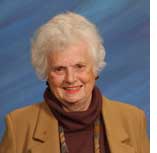By Natasha Josefowitz, Ph.D.

LA JOLLA, California — The latest brain research—I should know something about it. The political rally—I should support the cause. A lecture on…whatever—I’m afraid to miss an opportunity to learn something. And so it goes: read the latest book—see the well-reviewed movie—attend the informative lecture—use the latest technology—do volunteer work—join the committee, the board, the council—be there, go for it. I’m resigned to never be caught up and always feel somehow guilty that I’m not trying harder to do so.
The question is why, when I could stay peacefully at home? What am I driven by? Is it unquenchable curiosity? Is it an addiction to new information, for the thrill of new experience, for the need to be needed, to be a contributor, or for the pleasure of helping or making a difference? Is it to learn one more thing in order to be a more interesting dinner companion? Or is it to feel better about myself—to fill a gap which will finally make me an OK person, able to measure up to some undefined and indefinable standard?
So many of us have lost “down time,” the ability to sit and do nothing—nothing but think, letting thoughts wonder, contemplate our lives—where we are going, where we want to go, process recent events and conversations, re-prioritize—knowing that whatever we decide today we can reconsider tomorrow and should do so regularly. We have stopped taking the time to relax: breathe deep, meditate, stay in the flow, take a walk, pick a flower, eat some chocolate, make a cup of tea and sip it slowly, listen to music, read something for pleasure, call a friend and just chat.
I don’t do any of these things, running from one thing to another, back-to-back with no breathing room in between. Some people smoke, drink, do drugs, or overeat in order to feel better. I do “rushing around.” Distraction for the sake of distraction. And what does this continuing distraction achieve? It hides loneliness and keeps me from looking within, facing myself, talking the time for real connections with people. I check my e-mail while talking on the phone, and neither gets the proper attention. Research on multitasking has shown it to be counterproductive—neither task is done well and the potential pleasure from the work is dissipated. One more thing just gets checked off on my to-do list.
I know I am not the only one on this merry-go-round. The complaint that our lives consist almost entirely of going from one thing to another—back-to-back is pervasive, yet no one seems to be able to let go. In an informal survey of people I met while in meetings, lectures, and social engagements, I was told over and over again how difficult it is for people to say “no” to requests—be they to join a committee, help with a project, or accept invitations. People often confuse rejection of the activity or invitation with rejection of the person doing the asking. We want to be liked and to be seen as friendly and helpful.
I have been doing this since my husband died, and it is time to reconsider the effectiveness of this too-much-ness. Part of me does like living on an endless learning curve, but what is lost is time for reassessment, quiet time.
So here are the questions to ask ourselves about each activity we add to, or keep on, our schedules—Why am I doing this? What do I hope to accomplish? Is it important and does it fit into my life as I wish it to be? What would happen if I did not do it? What would I do instead?
Of course the answer could be a plain—“I am doing it because it’s fun.” And that is reason enough. Doing things for fun is important for our immune system.
So I urge all of you out there who are breathless to enter “do nothing” time in your daily calendar. And you have to do it without guilt—you are not wasting time, you are nourishing your depleted brain, which feeds on new neural connections being formed by all these adventures but must also take the time to integrate them all into its complex circuitry.
Maybe amazing thoughts will occur to you during your “doing nothing” time, maybe your heart rate will slow down, maybe you will indulge in some sweet reverie of a long-forgotten memory, maybe….
Copyright © 2012. Natasha Josefowitz. All rights reserved.
*
Josefowitz is a freelance writer based in La Jolla, who may be reached at natasha.josefowitz@sdjewishworld.com This article appeared previously in the La Jolla Village News.
Hi, Natasha,
I’m in a similar position to you, but find that the one place where I can really relax and get that precious ‘down time’ you mention is when I go to a concert and focus on the music. That is a form of meditation that refreshes my soul and puts me in touch with my inner soul (when I don’t doze off, of course).
Best wishes, and please take a look at my blog: http://fromdorothea.wordpress.com/
Dorothea